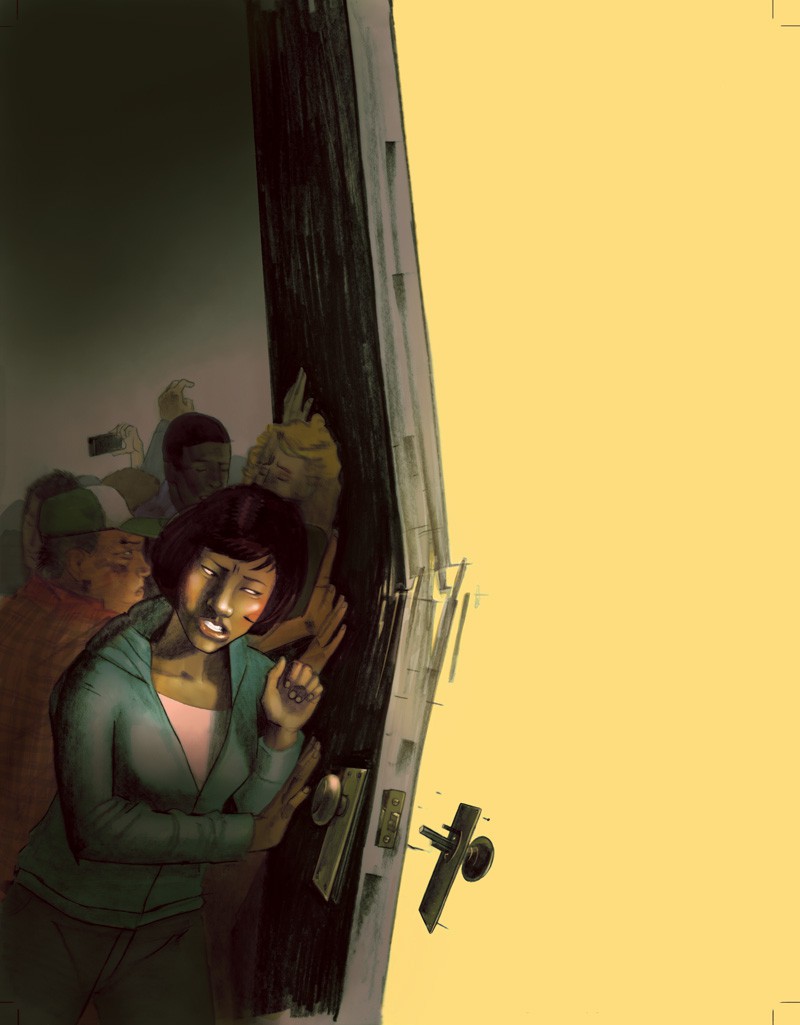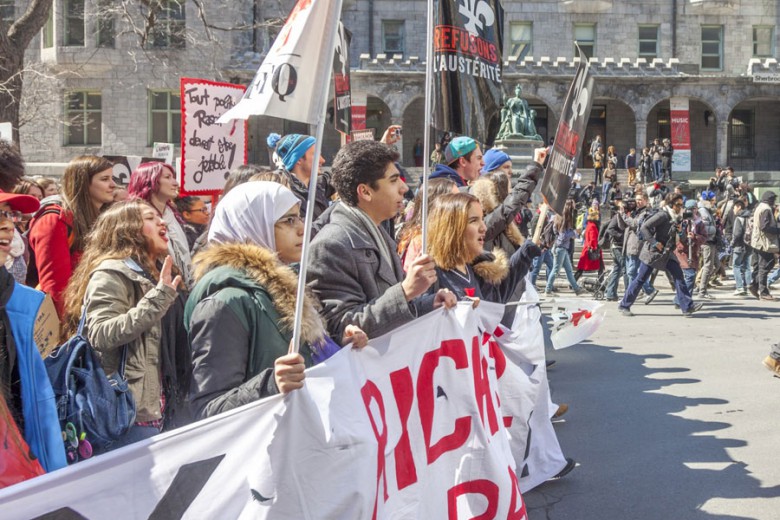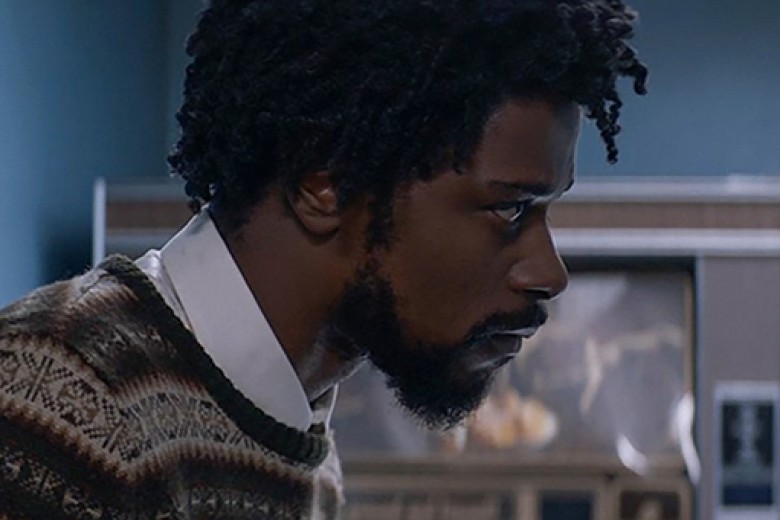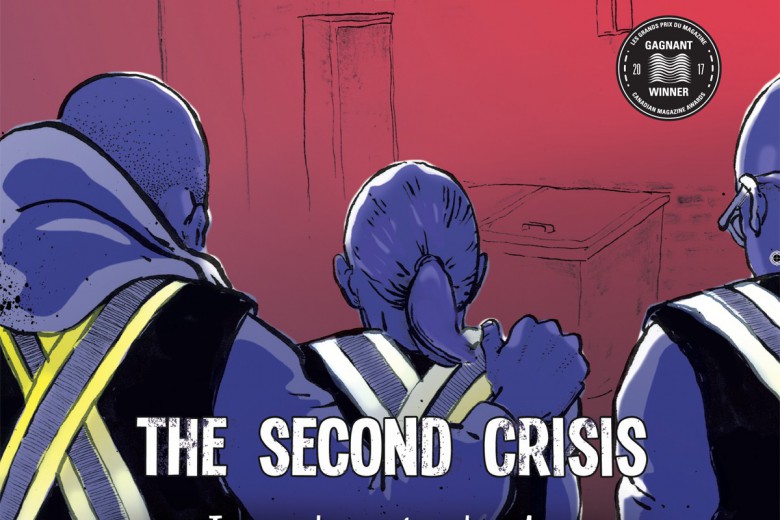
“They tell us we are dreamers. The true dreamers are those who think things can go on indefinitely the way they are.”
— Slavoj Žižek at Liberty Plaza in Lower Manhattan.
As this issue goes to press, protests inspired by Occupy Wall Street have taken hold in well over 1,000 cities across North America and beyond, including nearly every major city in Canada. What began as an encampment of a few hundred people in the heart of New York City’s financial district on September 17th has erupted into a popular movement that continues to capture the imagination and sympathies of growing numbers of people. This nascent movement has become a lightning rod for their collective anger over a system in which those responsible for the current economic crisis continue to rake in record profits while the rest of us endure unrelenting austerity measures.
At a time of pervasive defeatism and paralysis on the radical left, this movement has caught many by surprise, and inspired hope in the possibility of a turning point. Flawed and fragmented though it may be, the Occupy movement can’t help but feel historically significant, particularly as diverse communities rooted in histories of struggle and those most affected by the current crisis carve space within and alongside it.
Among those who’ve joined the ranks of the Occupy movement is organized labour, beginning with the refusal of bus drivers from the 30,000-strong New York Transport Workers Union to ferry arrested demonstrators to jail. Since then, unions ranging from the United Steelworkers to National Nurses United and the Service Employees International Union, collectively representing hundreds of thousands of workers, have pledged their support for Occupy Wall Street and taken to the streets.
The support of unions is not merely an extension of solidarity to demonstrators. As the spokesperson for New York’s transit workers explains, “We view the protests as young people who are articulating the same kind of things that we’ve been trying to articulate.”
As the Occupy movement continues to gather momentum, this moment presents an opportunity to re-evaluate the role of unions in social transformation and look beyond the reactive task of simply defending the working conditions of their members within the capitalist system, to which much of the labour movement has become resigned. Moreover, it has opened a window to forge new alliances at a time when the need for cross-movement solidarity is dire.
Organized labour is under sustained attack across Canada, as evidenced by both provincial and federal legislation undermining the right to organize, to bargain collectively, and to strike. As Hans Rollman writes in this issue, the use of back-to-work legislation to force an end to, or even pre-empt, labour disputes on terms favourable to employers has become the new norm, calling into question the future of labour’s single most powerful tactic: the strike.
As Tracey Mitchell describes in the following pages, legislative attacks have been accompanied by a public relations war on unions in which “right-wing governments and conservative media are succeeding in playing the average worker against the union worker, who is typically portrayed as cash-grabbing and lazy.”
In a context where only three out of ten workers are unionized (the numbers are considerably worse for workers of colour, who are disproportionately concentrated in poorly paid, part-time and precarious jobs), the labour movement is losing its ability to enforce minimum standards in wages and benefits across both unionized and non-unionized workplaces, and is indeed challenged to justify its relevance to non-unionized workers.
How will we resist becoming further categorized and divided, and build the relationships of mutual support and solidarity necessary to realize the potential of our collective power?
As Dave Bleakney writes in his post-mortem of the recent postal strike and ensuing lock-out, “at times such as strikes, the need for support and solidarity from the community is clear. But what are we doing to foster these relationships in between moments of crisis? And what is the labour movement, in turn, doing to support the communities that we are all part of? Why do we not have a labour movement that stands with G20 prisoners, rounded up and brutalized in what has now become a rote activity of police repression at summits everywhere? Why do we celebrate the culture of Aboriginal peoples, the drumming and the ceremonies, but not their militant struggles?”
As scholar and activist Vijay Prashad recently wrote in reference to the Occupy Wall Street movement, goodwill alone cannot overcome the divisions among us, upon which capitalism has built itself. They must be actively struggled against, while we continue to welcome more people, “bringing with them their many complaints and dreams.” Our movement “must promise more to each of us than what is available in the present… it must breathe in the many currents of dissatisfaction, and breathe out a new radical imagination.”






